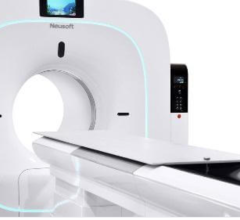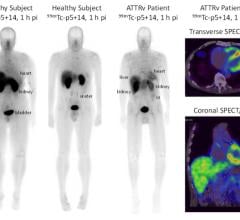January 16, 2009 - According to a report released Jan. 14, 2009, by the National Academy of Sciences (NAS), eliminating the highly enriched uranium process (HEU) — the primary source of medical isotopes in the U.S. — would be technically and economically feasible; however, the conversion to an alternative source will be years away, is likely to be more costly than the report estimates and will not alleviate the current ongoing shortages of medically necessary isotopes, according to the Society of Nuclear Medicine.
The NAS report, "Medical Isotope Production Without Highly Enriched Uranium," was mandated by Congress to examine the feasibility of conversion from HEU to a low enriched uranium (LEU) process and to make recommendations for how such a change may be made.
"The NAS report does not address concerns about isotope production that could have significant impact for patients requiring common diagnostic procedures," said Robert W. Atcher, Ph.D., M.B.A., president of SNM and chair of SNM's Isotope Availability Taskforce. "We are pleased by the prudent recommendations of the report and long-term view toward the potential conversion from HEU. However, the information used for developing the economic impact is suspect and the need for a reliable domestic isotope supply remains critical and is not addressed by this report, and continues to put patients at risk."
The majority of the U.S.' supply of medical radioisotopes is produced using HEU targets at reactors in Canada and Europe. In addition, there are currently no domestic producers of Molybdenum-99 (Mo-99)— from which Technectium-99m (Tc-99m) is derived—which is produced from HEU. The U.S. continues to rely on five facilities outside the country, which in the recent past have been unreliable due to their age and need for regular maintenance in addition to unscheduled outages due to safety and maintenance issues. Any disruption at these facilities causes significant delays to patients receiving nuclear medicine and molecular imaging procedures.
While the NAS report focuses on potential security concerns related to isotope production using HEU, there are significant regulatory, financial, environmental and patient issues linked with a conversion to LEU that must be taken into consideration before making any large-scale changes, said SNM.
"The report makes some prudent recommendations for a move away from HEU, such as involving the U.S. Food and Drug Administration early on in the conversion process," said Atcher. "Our concern is for our patients who benefit from molecular imaging and nuclear medicine tests for the detection and staging of cancer and other conditions. In addition, there is concern that the economic issues associated with the conversion to LEU production have not been adequately assessed nor addressed."
Continuing shutdowns due to maintenance work at the world's nuclear reactors that manufacture Mo-99 have increased the urgency of finding an alternative reliable domestic source for Mo-99.
For more information: www.snm.org


 July 30, 2024
July 30, 2024 








